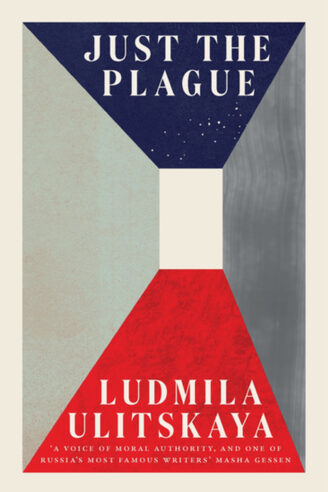I am fond of saying to my friends, especially liberal ones, that the state is not neutral. Any government is fundamentally a “legitimate monopoly on violence,” to use the political-science definition of the word; a blunt instrument of death on those it believes are breaking the social order. Given the country’s history, it makes sense that a Russian writer could elaborate on that point during a period of great upheaval. That writer is Lyudmila Ulitskaya and the novel is Just the Plague.
Just the Plague was written in the 1980s as a movie script, and was rewritten in 2020 as a response to pressing contemporary events. (I should note that Natasha Rapoport claims to have worked with Ulitskaya on the original screenplay. Ulitskaya has not addressed the accusation.) It concerns an outbreak of the pneumonic plague in Stalin’s Soviet Union, but the parallel with our times is clear.
The dominant emotion in Just the Plague is a deep, abiding paranoia, there for two reasons: the fear of unseeable microbes bringing suffering and death, and the fear of the secret police, who could arrest you, torture you, and kill you at a moment’s notice, using the cover of seemingly familiar people to surveil you. The two emotions are similar in some respects, and Ulitskaya welds the two together in a deeply disturbing narrative that is, to me, more effective than any horror film.
Much of the novel is concerned with the nature of the Stalinist state, which cracks down on the virus and the people it suspects are carriers. Ulitskaya is a dissident, having protested against the war in Ukraine, and distributed forbidden literature in her youth. Perhaps perplexingly to educated Western liberal readers, the point she makes can sound familiar to the arguments of the populist right. The reason the Soviet state is so effective at combating this infection in her story is the nature of its security bureaucracy. It is the NKVD, which I will note was a literal secret police, one made to stamp out any resistance to Stalinism. It is a tool that is, for the moment, used for good — but Ulitskaya asks if that has any effect on the nature of the tool, or the nature of the tool’s bearer.
Just the Plague asks hard questions about political power and the nature of the state, and how it can be used for good and ill — and how the tools used for good can also be used for ill.





